Participants feel hopeless and frustrated
‘Yet another climate dialogue? It’s time to finally take action!’
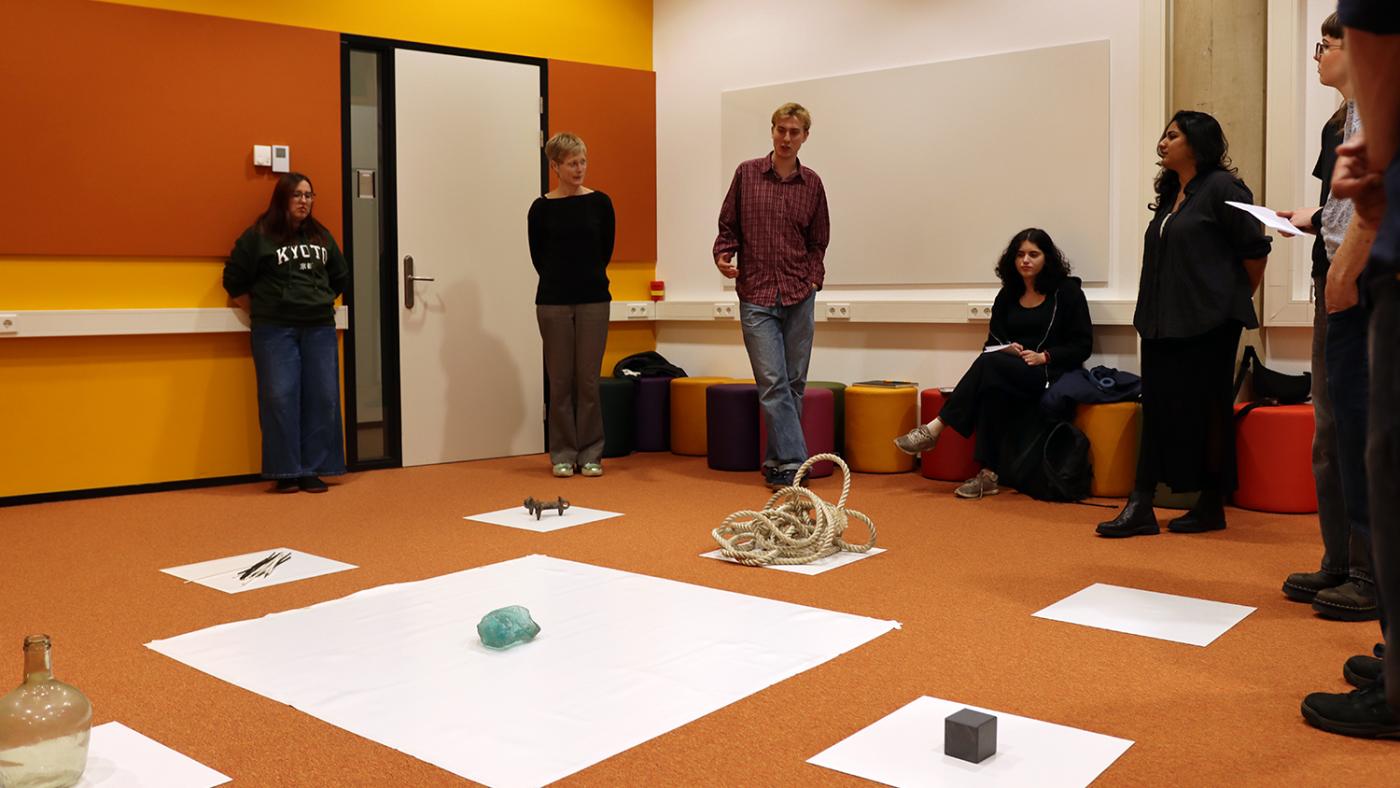
‘When I talk about climate change, I think of...’ With this sentence, moderator Annick de Wit opened the session, which used a dialogue format known as Stream of Consciousness. The technique consists of inviting people to say whatever comes to mind without being interrupted by anyone else. The twelve participants were divided into pairs, and one member of each pair was given two minutes to freely express their thoughts on what climate change meant to them. The others simply listened. After two minutes, the moderator presented the duos with a new prompt, and then it was the other participant's turn to speak. This form of dialogue is intended to promote a better understanding of the problem and each other.
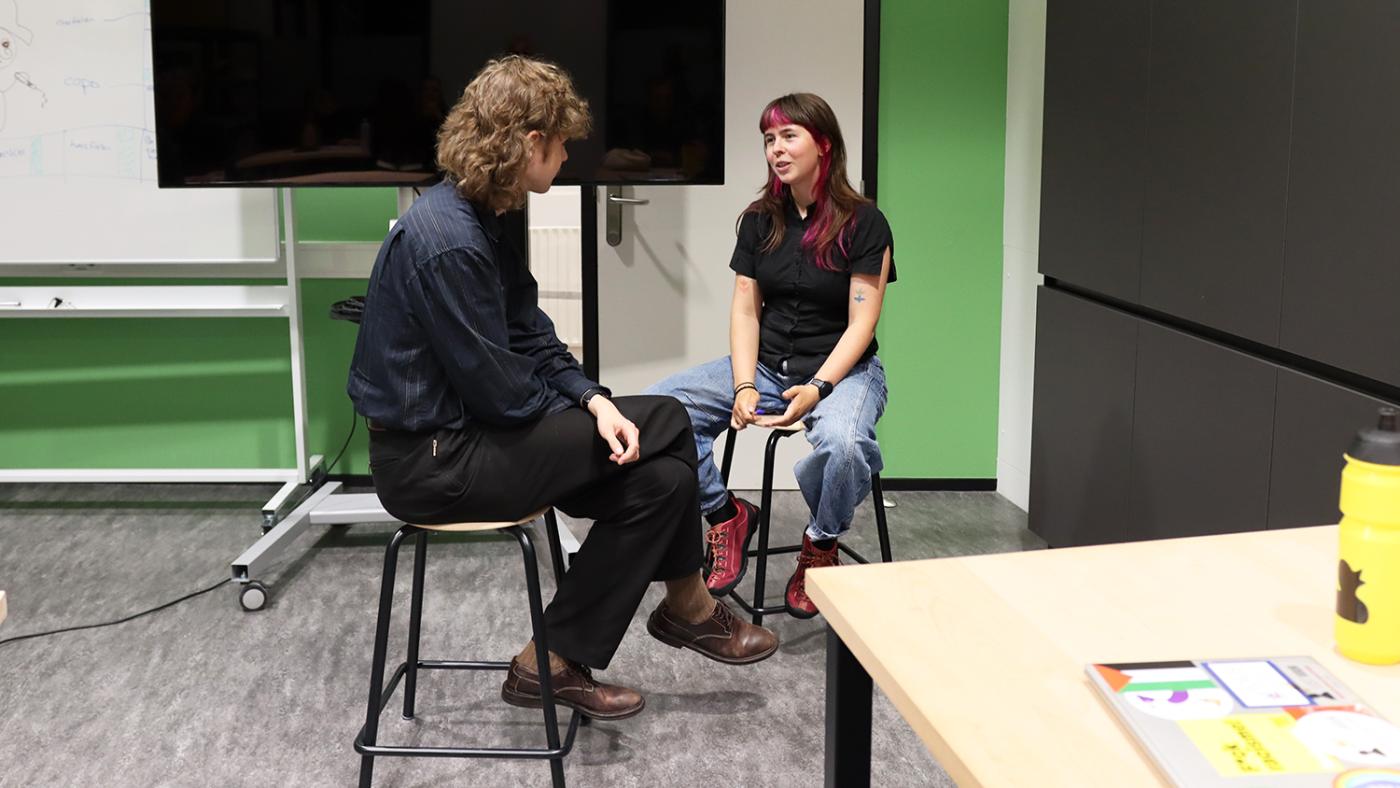
Meanwhile, another form of dialogue took place in the room next door, led by Robin Bos. Ten people stood in a circle around a square drawn on the ground. Between them and the square lay eight objects, such as a cube, a rope, a stone and a bottle, which seemed to have been chosen at random. One participant was asked to pick up an object, place it in the centre and then answer the question: 'How do you relate this object to climate change and why are you placing it there?' The first participant picked up a blue mineral. ‘If we want to continue living on this planet, we must get used to a more modest way of life. I think the stone represents the way we extract and use natural resources,’ he said. This method of dialogue is called “the plane”. The objects chosen by the participants spark a conversation and reveal different perspectives, according to Bos.
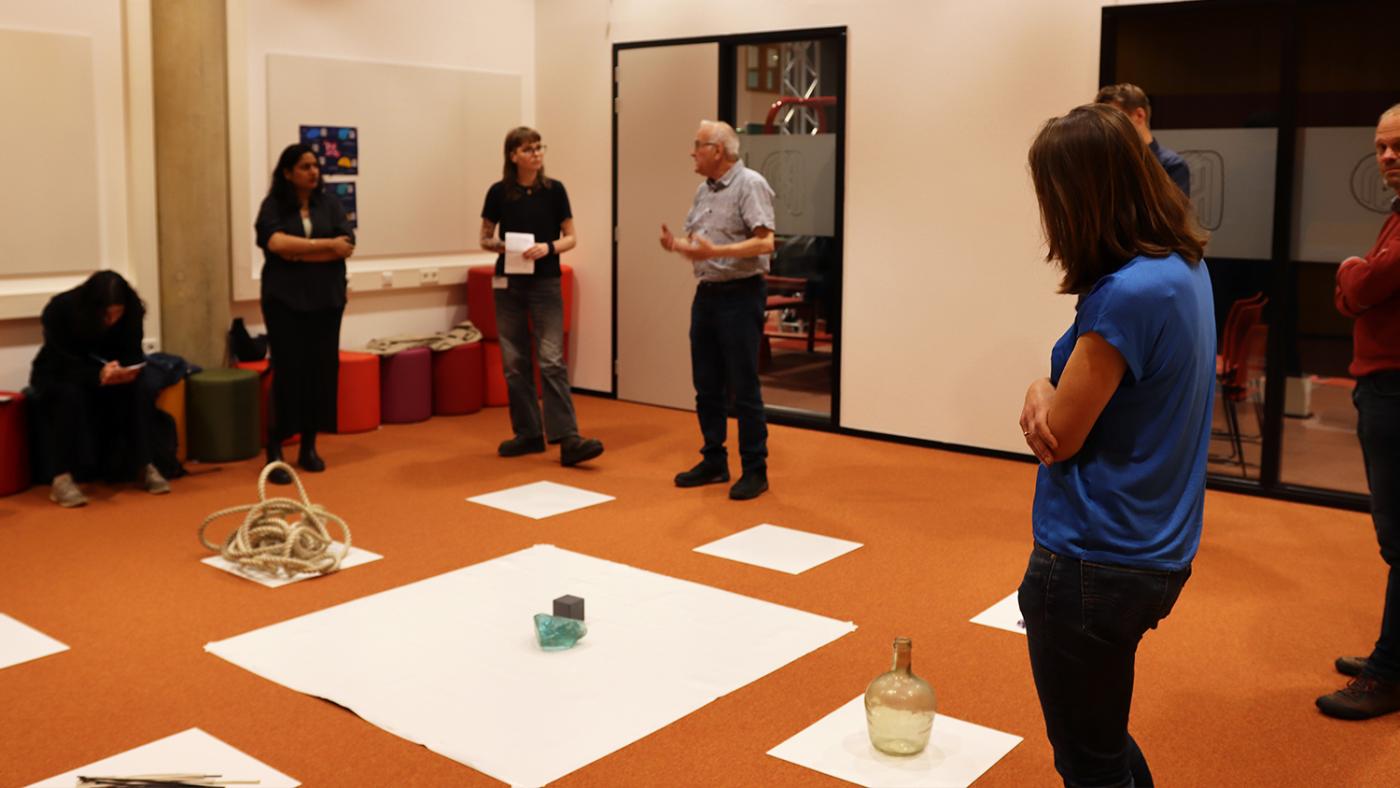
Exchange of perspectives
The climate dialogue was held in the Playground of the Vening Meinesz building. It was a joint initiative of the Comenius educational innovation project Open Minds and DUB. The dialogue was the first activity of a DUB project in which readers get to choose among three societal topics for the publication to explore in depth. Most DUB readers chose to take a deep dive into what individuals can do to save the planet. They wondered how much individual responsibility there is, to what extent certain measures can be imposed, and what role governments or universities play in the fight against climate change.
‘This is an interesting topic that matches our Open Minds project,’ says Project Leader Hiljanne van der Meer. ‘Our projects mainly try to stimulate an exchange of perspectives. A symposium is often about knowledge transfer, arguments and convincing each other. In our dialogues, we want an equal and respectful exchange of ideas, feelings and considerations, with the aim of better understanding a problem and each other by approaching it from different angles.’
Around twenty people attended the meeting, including eight students, six scientists and six non-scientists. All faculties were represented. In this sense, it was a diverse group. What was less diverse was that almost everyone shared the same concerns about the climate and believed that action must be taken to tackle the problem. This indicates a selection bias: people who care about the climate are more likely to attend a dialogue on the subject than people who consider it less important. As a result, the discussion lacked a wider variety of perspectives. Even so, the participants could share their concerns, which created a bond between them. There were no uncomfortable conversations that afternoon.
The participants have serious concerns about the future. They suffer from climate anxiety, fear the extinction of animals and plants, and feel hopeless and frustrated. According to them, people are not doing enough. It annoyed them that most people seem to be concerned with their own daily lives and do not think about the future. Most people do not seem to be doing anything about climate change. A medical student was genuinely surprised: "I don't understand how people can remain so calm about this. When I see what is coming our way in terms of climate change, it really scares me. I hardly dare do anything anymore out of fear that it will get worse. When I see people taking this threat lightly or not taking it seriously, I wish I could do that."
A Philosophy student in his fifties says: ‘People from my generation often think that climate change is no longer their problem, which is wrong. I think it's our problem too, and that we need to support the future. Our cultural prejudices make it difficult to bring about change.’
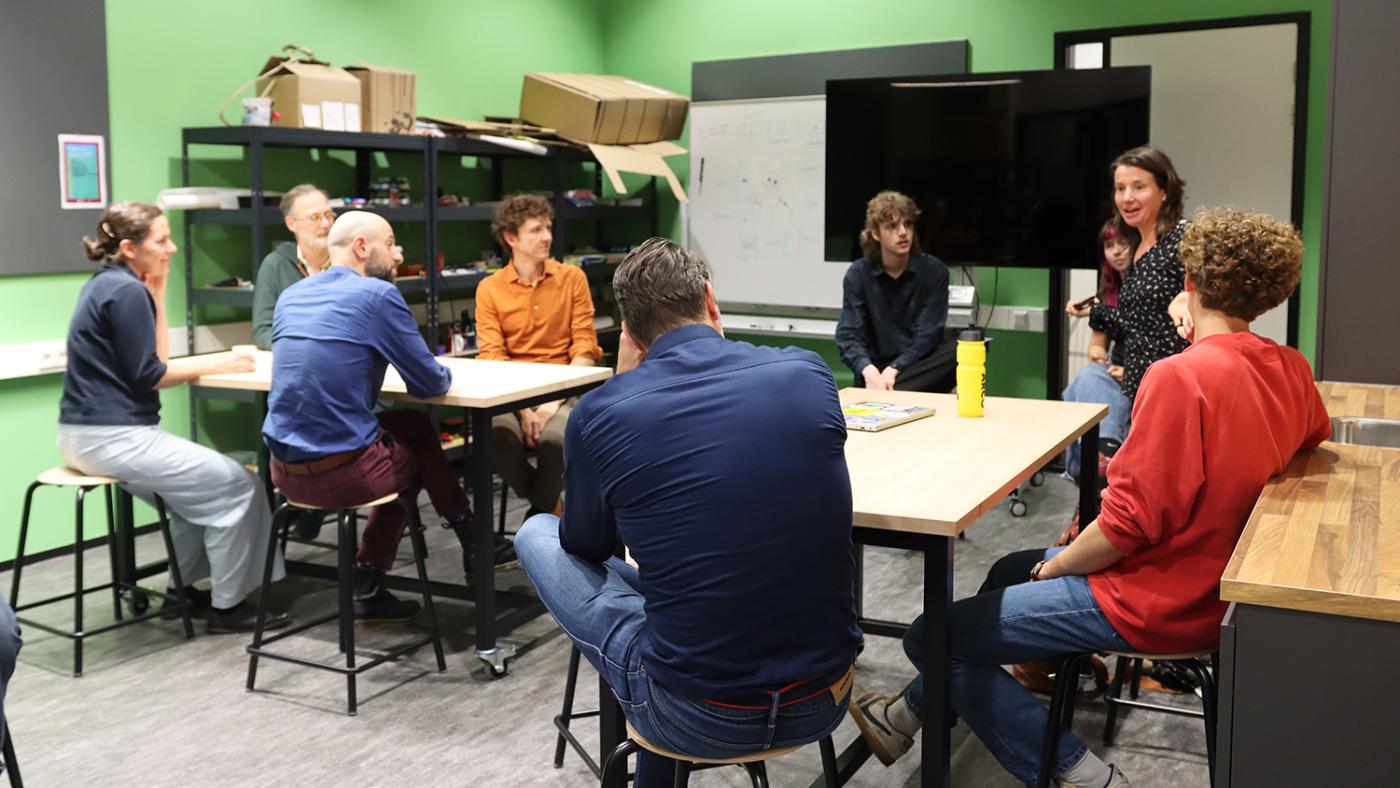
The frustration was palpable
Both dialogues touched on climate justice and who is ultimately responsible for solving the climate problem: individuals or governments and institutions, such as universities?
During the debriefing of the session with the duo dialogues, the frustration of some participants was palpable. They feel that the university is not taking enough action or that progress is moving too slowly. One participant noted that the university organises many dialogues on the topic, but too little happens afterwards, which makes the debate feel empty or even look like an excuse not to take action. By constantly talking about it, the university administration can postpone taking tangible steps.
A lecturer in Social Sciences said he was frustrated that he had suggested academics travel less often to conferences. At first, there was no reaction to his proposal. But that was until they found out that the plan could save money and therefore be used as a cost-cutting measure. That's when he got a positive response. ‘And it's good for the environment too,’ they added.
An environmental philosopher said he had been advocating for a vegan university for years. ‘We debate about this a lot, but no real steps are being taken.’
‘This feeling of being thwarted makes us depressed. I would like to think about ways to move forward,’ said one participant. Other participants also struggle with feelings of despair and the idea of being thwarted.
‘We can spend our whole lives worrying about everything we're doing wrong and do nothing, or we can shake up our lives and try to achieve something,’ summarises one participant.
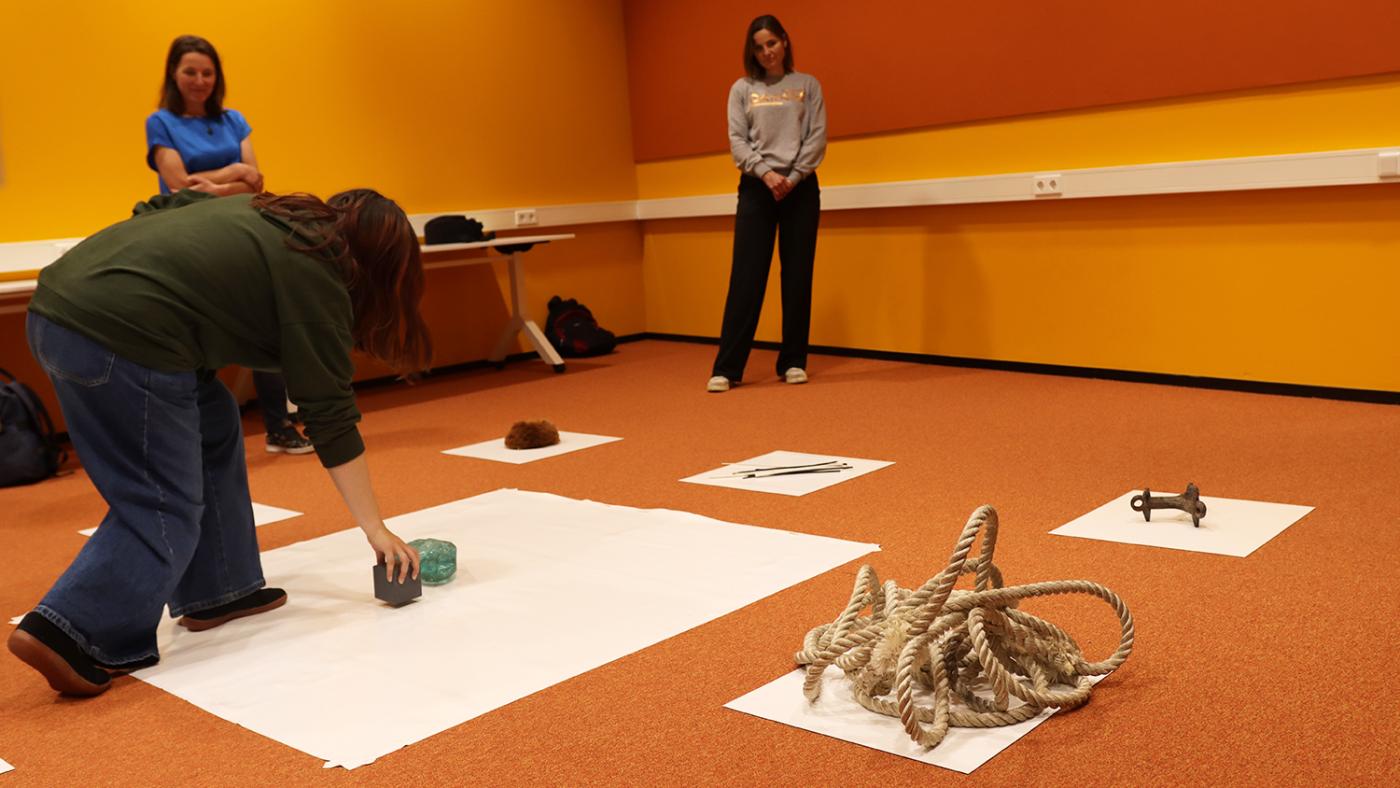
Making the problem visible
Several participants believe that the climate crisis needs to be made more visible. One participant put it this way: ‘It all starts with awareness. That's how you get people moving. Thousands of people protest for Gaza, for example, because they have seen what is happening there. It hurts them. But you can't feel climate change.’
What does help, according to the participants, is to take action together. That way, you see that you are not the only one who cares. Among the participants are students who have joined forces with the Young Future Food Movement. They are striving for a circular, local, accessible and ecologically responsible food system on campus, calling, among other things, for the establishment of a community kitchen. ‘When you see more people around you working on this, you become more motivated and feel less alone.’
Moderator Annick de Wit understood their frustration about the impression of too many debates being held and not so much happening afterwards. ‘But I do believe that debates can help us start movements that can bring about change. If we can listen to each other better, we can organise ourselves better to achieve our goals.’
One participant said: ‘There is still too much of a lack of imagination. People find it difficult to imagine what the future might look like. If you have a vision to work towards, you are also more motivated to take action.’
Finally, Jeroen Hutten takes the floor. He is head of the Sustainable Office and, therefore, responsible for the sustainable development of the university. He signed up as a participant. “I understand that it all seems to be moving slowly and that there is room for improvement in several areas. But a lot of good things are happening at UU, too. We are working hard to make buildings more sustainable and energy-efficient. What we are doing is not always visible." Dialogue can also be valuable in gaining such insight. For example, he exchanged numbers with a future student member of the University Council.
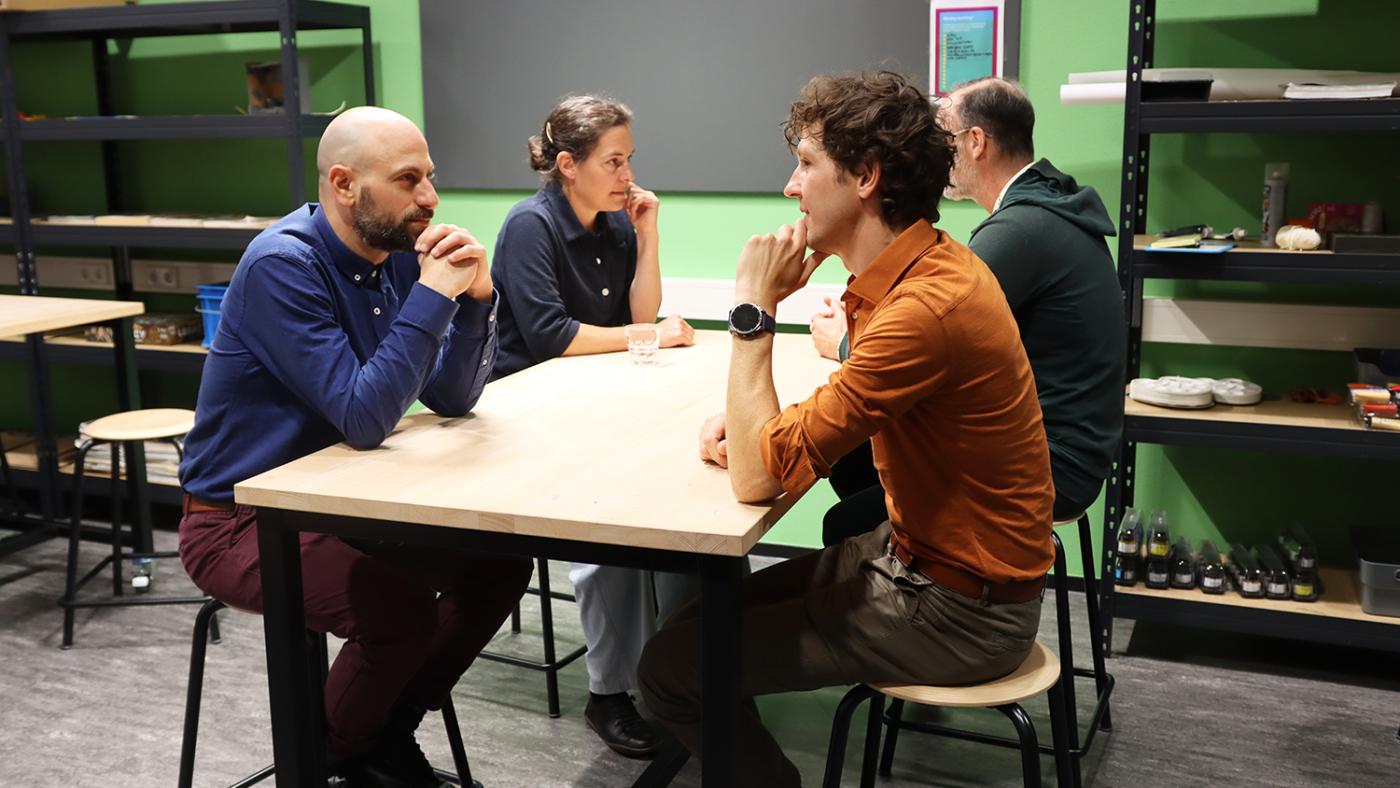
This is the first article of a series taking a deep dive into climate change and who is responsible for combating it. DUB readers were invited to choose among three topics they would like to read more about. Most readers wanted to know what individuals can do to save the planet. They wonder how much individuals should be made responsible for climate change, to what extent measures can be imposed, and what role governments or universities play in the fight against climate change.
You can find all the other articles here.